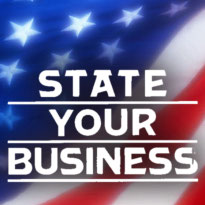 Conspiracy theorist alert! Poker players still hoping against hope that Sen. Harry Reid (D-NV) will somehow sneak online poker legislation through Congress before the November election are seeing hopeful signs on the official website of Sen. Jon Kyl (R-AZ). Kyl was a staunch opponent of anything related to online gambling up until last April, when his website quietly added a few lines of noncommittal text saying he would “consider” any new online poker legislation.
Conspiracy theorist alert! Poker players still hoping against hope that Sen. Harry Reid (D-NV) will somehow sneak online poker legislation through Congress before the November election are seeing hopeful signs on the official website of Sen. Jon Kyl (R-AZ). Kyl was a staunch opponent of anything related to online gambling up until last April, when his website quietly added a few lines of noncommittal text saying he would “consider” any new online poker legislation.
Late Tuesday, PokerFuse contributor Zack Tracy noted that Kyl’s website had undergone another edit, this one removing the lengthy diatribe equating online gambling with crack cocaine, organized crime and anecdotal tales of how bad beats were convincing the youth of America to throw themselves off tall buildings (we’re paraphrasing here). So does Kyl’s effort to scrub his site of anti-gambling rhetoric mean the federal push for online poker isn’t quite dead in 2012 and Kyl doesn’t want to look like a hypocrite if he supports such legislation? Or did one of Kyl’s techie interns just delete the passage by accident?
LET’S HAVE SOME FAIR PLAY, USA
There aren’t many more stalwart backers of federal online poker regulation than American Gaming Association CEO Frank Fahrenkopf, but even he thinks getting a federal law passed in 2012 “depends on luck.” Fahrenkopf made the observation at the Gaming Laboratories International Roundtable in Las Vegas on Wednesday. The Associated Press reports that Fahrenkopf told attendees a regulated online gambling market would only work if all prospective operators were “treated the same and fairly. No one gets a leg up on anybody else.”
Fahrenkopf’s concern is that if the American market is regulated on a state-by-state basis, his organization’s members (the major B&M casino operators) will find themselves behind state lottery operators in the online gambling queue. The lotteries, Fahrenkopf believes, have the strange notion “that the casino industry is trying to screw them.” Hard to imagine where they might have picked up this notion, unless it was the AGA’s relentless backing of a federal solution overseen solely by Nevada state regulators, with whom the B&M casinos are on a first-name basis.
NJ RACETRACKS IN DEAL-MAKING MOOD
New Jersey certainly isn’t waiting for a ‘by your leave’ from Fahrenkopf or the feds to pass their own online gambling legislation. But if NJ’s bills are going to be passed by state Sen. Ray Lesniak’s March 15 timeline, the objections of the state’s racetracks will need to be addressed. Racing has suggested it might sue to block the legislation unless tracks are allowed to join Atlantic City’s casinos at the online gambling table. But Dennis Drazin, a consultant for the group set to take control of the state-owned Monmouth Park track, says racing is asking only that “some consideration be given to amending [the legislation], tweaking it a little bit without hurting the casinos … if you allow a casino that wants to partner with the racetracks, you capture the racetrack customers who are already gambling.”
Drazin didn’t mention any potential pair-ups by name, but Resorts Atlantic City owner Morris Bailey has his own stable of racehorses and was one of the names in consideration to take over the Monmouth Park lease. Lesniak told the Asbury Park Press that he appreciated Drazin’s comments, and understood that both casinos and tracks were important to the state economy. “We’ll work it out.”
WHEN IN DOUBT, STALL
Finally, legislators in Hawaii have made another very tentative move toward ending their state’s prohibition against all things gambling. On Tuesday, the state Senate passed SB 2893, which would establish a nine-member commission to make a cost/benefit analysis of the effects that different forms of gambling would have on Hawaii’s economy and society. The idea is this knowledge would empower legislators to make informed decisions on how best to free Hawaii from its continued association with Utah, the only other state in the union to bar all forms of gambling.